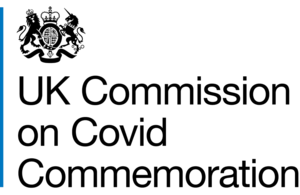In response to the results of the annual stakeholder survey, David Neal, the Independent Chief Inspector, said:
I welcome the responses to this survey and thank all those who took the time to contribute.
I am encouraged to find that stakeholders mostly find participation with the ICIBI worthwhile and are satisfied with their communication with my organisation.
Feedback indicates that there are concerns relating to the Home Office’s response to ICIBI recommendations. This is a concern of which I am aware and that I intend to explore further over the coming months.
Many suggestions were made for topics for future inspections, all of which have been noted and will form part of consideration for my 2023-24 inspection programme.
I would like to remind stakeholders that they are free to contact me at any time, either directly or through my inspectors.
Stakeholders who have previously engaged with the ICIBI through our forums, in interviews or by submitting evidence for an inspection were invited by email and through the ICIBI’s website and Twitter to participate in the survey.
The survey asked questions relating to stakeholders’ experiences of engaging with the ICIBI. It also asked for their views on inspection reports, effectiveness of recommendations, and new ways of working.
Thirty-seven stakeholders completed the survey, an increase from 22 in 2021. Respondents represented a range of organisations, including charities, trade associations, the aviation and maritime sectors, and local authority partnerships:
| Participant |
Number of respondents |
| Charity |
18 |
| Other* |
6 |
| Trade association |
5 |
| Local authority partnership (e.g. regional strategic migration partnership), or devolved nation |
4 |
| Academic or researcher |
1 |
| Direct personal experience of Home Office’s border or immigration functions, e.g. EU citizen, asylum seeker, refugee |
1 |
| Trade union |
1 |
| Legal representative, firm or chamber |
1 |
| Legal representative, firm or chamber |
1 |
*Of those who selected other, respondents were:
- 3 from aviation sector
- 1 from the maritime sector
- 1 non-Home Office civil servant
Headline findings are as follows:
Engagement with ICIBI
Generally, scores indicated that stakeholders find engaging with the ICIBI worthwhile, with 60% of respondents using ICIBI inspection reports for advocacy or engagement with the Home Office, and 16% for information only.
Of 37 respondents, 29 (78.4%) were ‘very satisfied’ or ‘satisfied’ with their communication with ICIBI over the past year, while 3 (8.1%) had not had any recent communication.
Inspection reports
Of 37 respondents, 33 (89.2%) said the following statement, “ICIBI inspection reports provide constructive challenge to the Home Office”, either ‘fully’ or ‘somewhat’ reflected their opinion.
On whether “ICIBI inspection reports highlight good practice when it is encountered at the Home Office”, 34 out of 37 (94.4%) said this statement ‘fully’ or ‘somewhat’ reflected their opinion.
On whether “ICIBI inspection reports address equality and diversity issues”, 26 out of 37 respondents (70.3%) said it ‘fully’ or ‘somewhat’ reflected their opinion. This compares to 38.5% of respondents who were asked the same question last year, who either ‘strongly agreed’ or ‘agreed’ with this statement.
Recommendations
Satisfaction in the Home Office’s responses to ICIBI reports had decreased since 2021.
Although 86.5% of respondents agreed ‘fully’ or ‘somewhat’ that recommendations are well focused, when asked whether “ICIBI recommendations are effective in driving change within the Home Office”, only 20 out of 37 respondents (54%) said the statement either ‘fully’ or ‘somewhat’ reflected their opinion.
Just 8 out of 37 (21.6%) respondents believed the Home Office’s responses to ICIBI’s recommendations to be adequate.
New ways of working
ICIBI introduced new ways of working in August 2021, which included the commencement of shorter length inspections to complement the existing standard inspections, which last around 100 working days. The introduction of these shorter length inspections was to enable the inspectorate to be more agile and responsive to emerging issues, such as the increase in migrants arriving by small boat, and the use of hotels for housing unaccompanied asylum-seeking children.
A further aim of the new approach was to increase the inspectorate’s output, to enable it to examine more of the Home Office’s operations and activity, in shorter timeframes.
Short inspections in particular focus on inspectors’ observations, while medium inspections focus on a combination of observation and evidence analysis. In both cases, the scope must remain focused.
The survey asked stakeholders whether the following statement, “I support the new approach to inspecting”, reflected their opinion. Of 37 respondents, 33 (89.2%) said this statement ‘fully’ or somewhat’ reflected their opinion.
Looking forward
The responses to this survey will inform future stakeholder engagement and feed into our inspection planning. Work is already underway to follow up on feedback received.


